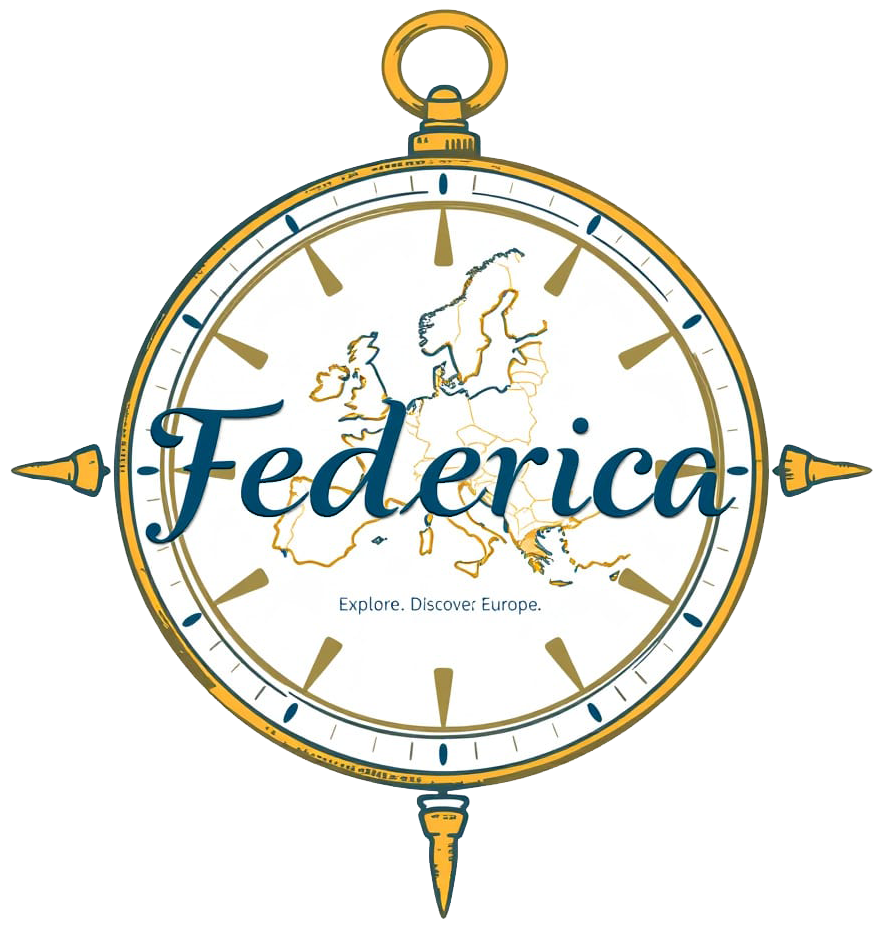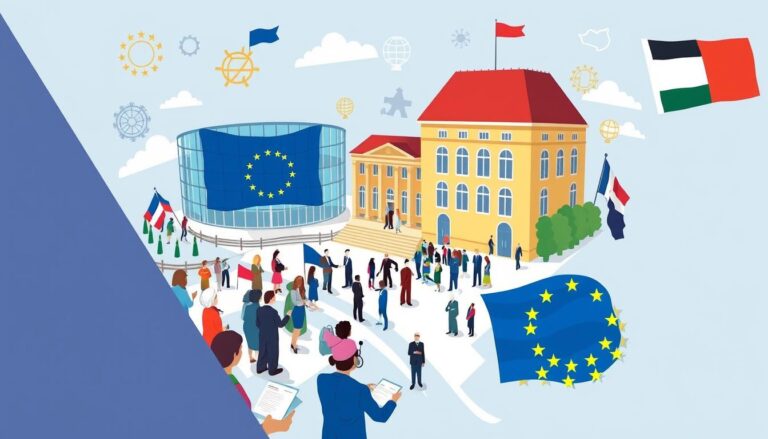The European Union (EU) stands as a significant player on the global stage, evolving dramatically since World War II to foster peace and economic prosperity among its member states. Instituted in 1992 with the Maastricht Treaty and reformed in 2007 by the Lisbon Treaty, the EU thrives on a complex political system where sovereignty is pooled and decision-making powers are delegated to various specialised institutions. Recent challenges, including the global financial crises, the influx of refugees, and geopolitical tensions, notably with Russia’s 2022 invasion of Ukraine, have tested and shaped the EU’s policy responses and institutional robustness.
EU Institutions and Their Roles
In understanding how the European Union operates, it is essential to delve into its institutional framework, which comprises several pivotal bodies responsible for the EU’s functionality and governance.
The European Parliament
The European Parliament is one of the key institutions in the EU’s political framework, consisting of 705 Members of the European Parliament (MEPs). These MEPs are elected every five years, with the most recent elections held in 2019 and the next scheduled for 2024. Younger generations, particularly those aged between 15 and 30, show a strong pro-European sentiment, with over 70% having a positive view of the EU. This body plays a critical role in shaping EU law and policies, reflecting the democratic ambitions of the broader European Union democracy.
The European Council
The European Council, fundamentally different from the Council of the European Union, consists of the heads of state or government of member states. They convene at least four times annually to set the political agenda and priorities. The president of the European Council, currently Charles Michel, can serve up to two terms of two-and-a-half years each. This institution embodies the collective leadership of the EU, steering its overarching strategic direction.
The Council of the European Union
The Council of the European Union, often referred to simply as ‘the Council,’ represents the individual governments of member states. Decision-making within the Council frequently employs a qualified majority voting system, where approximately 80% of law proposals require the approval of at least 55% of EU countries representing at least 65% of the total EU population. This weighted approach ensures that both populous and smaller countries have a balanced influence in EU governance.
The European Commission
The European Commission, currently headed by former German Defence Minister Ursula von der Leyen, comprises 27 Commissioners, one from each EU country. These Commissioners propose new legislation and programs in the general interest of the EU, functioning as the executive arm of the European Union political framework. Their work is crucial for the legislative process and the development of policies that impact all member states.
EU Institutions and Their Roles
The European Union (EU) is structured through its core EU institutions to ensure effective governance and representation. These institutions work harmoniously to maintain the legislative framework and enforce policies within the EU.
The European Parliament
Established in 1952 as the Common Assembly of the European Coal and Steel Community and transformed into the European Parliament in 1962, this institution is pivotal in representing EU citizens. It currently comprises 720 Members of the European Parliament (MEPs), elected directly by EU voters every five years. MEPs are apportioned amongst EU countries under a degressive proportionality scheme.
The Parliament is integral in legislative processes, involving 20 committees and three subcommittees that handle specific policy domains. Plenary sessions, typically held in Strasbourg, serve to finalise legislation. Furthermore, it supervises the work of the European Commission and approves the EU’s budget.
The European Council
The European Council is the institution where national leaders converge to set the overarching direction and priorities of the EU. It convenes at least four times a year and incorporates the heads of state or government from the 27 EU countries, the President of the European Council, and the President of the European Commission.
It plays a crucial role in shaping the EU’s strategic agenda, navigating complex policy issues, and guiding the EU’s response to international events. The European Council’s decisions significantly influence the legislative and political landscape of the EU.
The Council of the European Union
Also known as the Council of Ministers, the Council of the European Union consists of government ministers from each EU country. This body is instrumental in negotiating and adopting legislative acts, typically in collaboration with the European Parliament. The presidency of the Council rotates every six months among EU countries.
The Council of the European Union engages in various policy areas, including economic policies, international relations, and justice, working closely with other EU institutions to ensure cohesive decision-making.
The European Commission
As the executive arm of the EU, the European Commission is responsible for proposing legislation, implementing decisions, and managing the day-to-day operations of the EU. It comprises 27 commissioners, each representing an EU country, and operates based on collective decision-making.
The Commission supervises the application of EU laws and budgets, ensuring compliance and proper management. It also represents the EU in international negotiations, safeguarding the interests of EU citizens on the global stage.
The coordination and concerted efforts of these EU institutions are fundamental in upholding the values and objectives of the European Union, fostering integration, and promoting stability across Europe.
The Political System of the European Union
The European Union’s political system is a dynamic and complex structure designed to ensure democratic representation and efficient decision-making across its member states. By understanding the EU legislative process, EU laws and regulations, and the EU decision-making process, you can gain a deeper appreciation for how this unique political entity operates.
Legislative Process
The EU legislative process involves several stages, characterized by thorough debate and amendments before a proposal becomes law. The European Commission is principally responsible for proposing new laws, striving to reflect the EU’s broader interests while balancing the diverse perspectives of its member states. These proposals must win approval from both the European Parliament, consisting of 720 Members of the European Parliament (MEPs), and the Council of the European Union to ensure a democratic and well-considered legislative outcome.
EU Law and Regulations
EU laws and regulations span a wide range of competencies, addressing issues from exclusive domains like trade agreements to shared responsibilities, such as public health and environmental protection. The European Parliament, established in 1952 and holding its first direct elections in 1979, plays a critical role in this process, leveraging its committees and subcommittees to scrutinise and pass laws, approve the EU budget, and oversee international agreements. These laws are pivotal in fostering unity and coherence across the 27 member states.
EU Decision-Making Process
The EU decision-making process is a meticulous model of governance, often requiring a qualified majority for decisions, though unanimity is necessary for more sensitive areas like foreign policy. This process ensures that decisions not only reflect the collective interests of member states but also maintain democratic integrity. Sessions of the European Parliament, primarily held in Strasbourg and Brussels, are crucial in facilitating this deliberative democracy. By adhering to treaties such as the Maastricht Treaty (1992) and the Treaty of Lisbon (2007), the EU upholds the principles of cooperation, integration, and stability within its political system.

